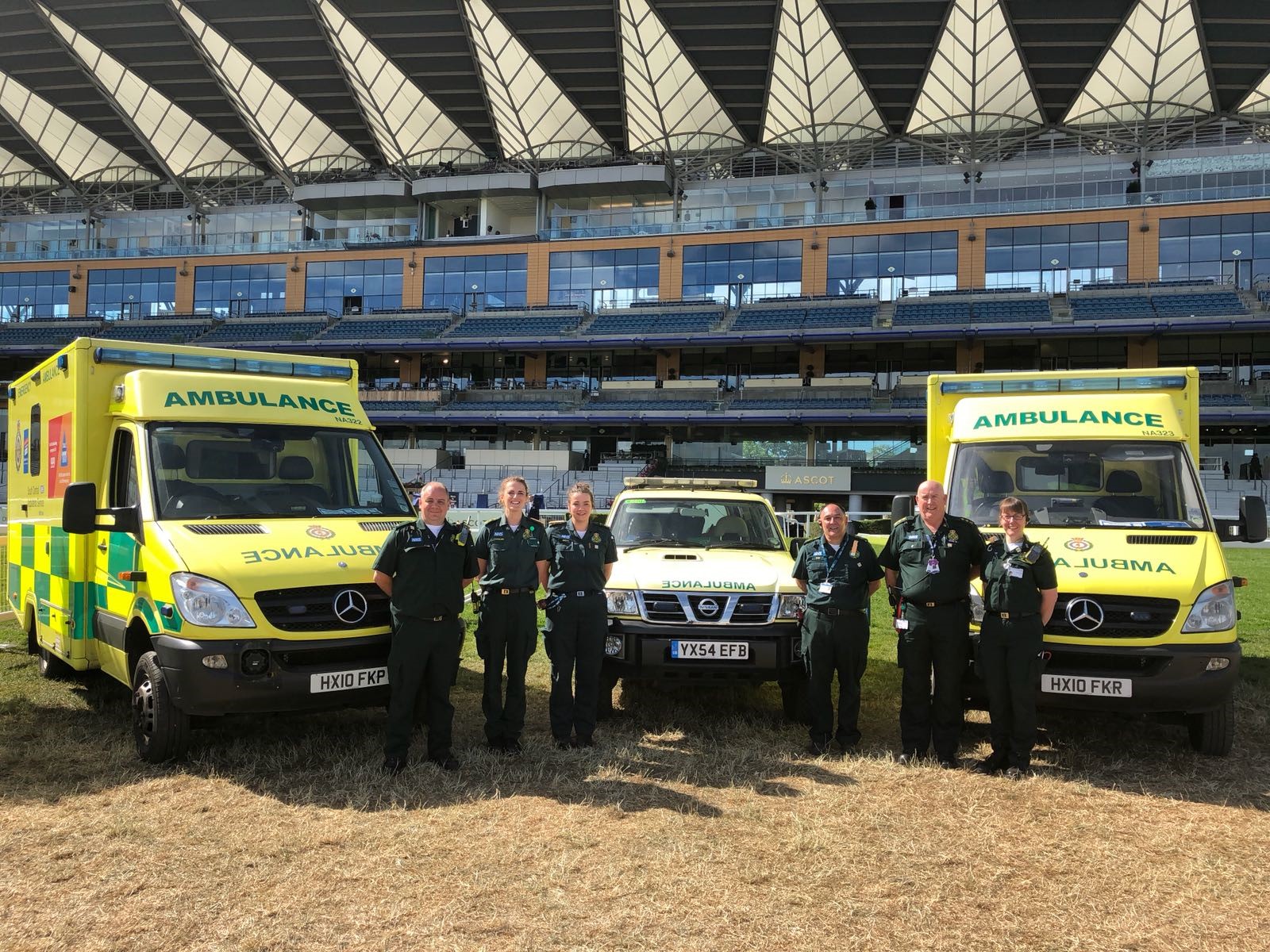A team of paramedics and specialist practitioners from South Central Ambulance Service NHS Foundation Trust (SCAS) will be on-hand to provide emergency medical support at Royal Ascot, which began today (Tuesday, 20 June).
Described as one of the highlights of the horse-racing calendar, Royal Ascot is attended by members of The Royal Family, other VIPs and high-profile celebrities and will see over 50,000 spectators arrive each day from 20 to 24 June.
Whilst initial first aid is given on-site by trained first responders from two other medical providers, the SCAS team will help with more serious and life-threatening emergencies, as well as undertake all transport of patients who require hospital treatment.
The SCAS team will be led by paramedic and Tactical Commander, Nic Dunbar, who has been working at Royal Ascot and other high-profile events held at the Berkshire racecourse for over 10 years.
“I initially started as one of the paramedics at the event doing a day or two as part of the team, so it’s an honour to now be leading the SCAS response and coordinating with all our partners who help ensure this internationally renowned and unique event is enjoyed by everyone who comes,” she said.
“By ensuring we have a team of medics available inside the racecourse, we are able to manage demand early and effectively without impacting on our resources in the surrounding areas while the event takes place.”
Spectators attending Royal Ascot are also asked to follow the guidance below to ensure they can enjoy the occasion safely:
- With hot weather and high temperatures likely to continue throughout the week, find shade and cool areas regularly throughout the day
- Drink plenty of water to stay hydrated and avoid having too much alcohol
- Although the strict dress codes might be relaxed depending on the weather, many people will still be wearing much warmer clothing than they might usually choose to in summer so watch out for dizziness, fainting, muscle cramps or spasms which can all be signs of dehydration
- Keep a hat on and top up regularly with sunscreen – harmful UV rays can still cause painful skin burn at this time of year even when the weather is overcast if you are outdoors for long periods
- If you or someone you are with feels too hot or unwell, move to a cool place, remove unnecessary clothing, drink water or a sports/rehydration drink – if symptoms worsen or persist after 30 minutes, seek medical help from the first aid team on-site.

